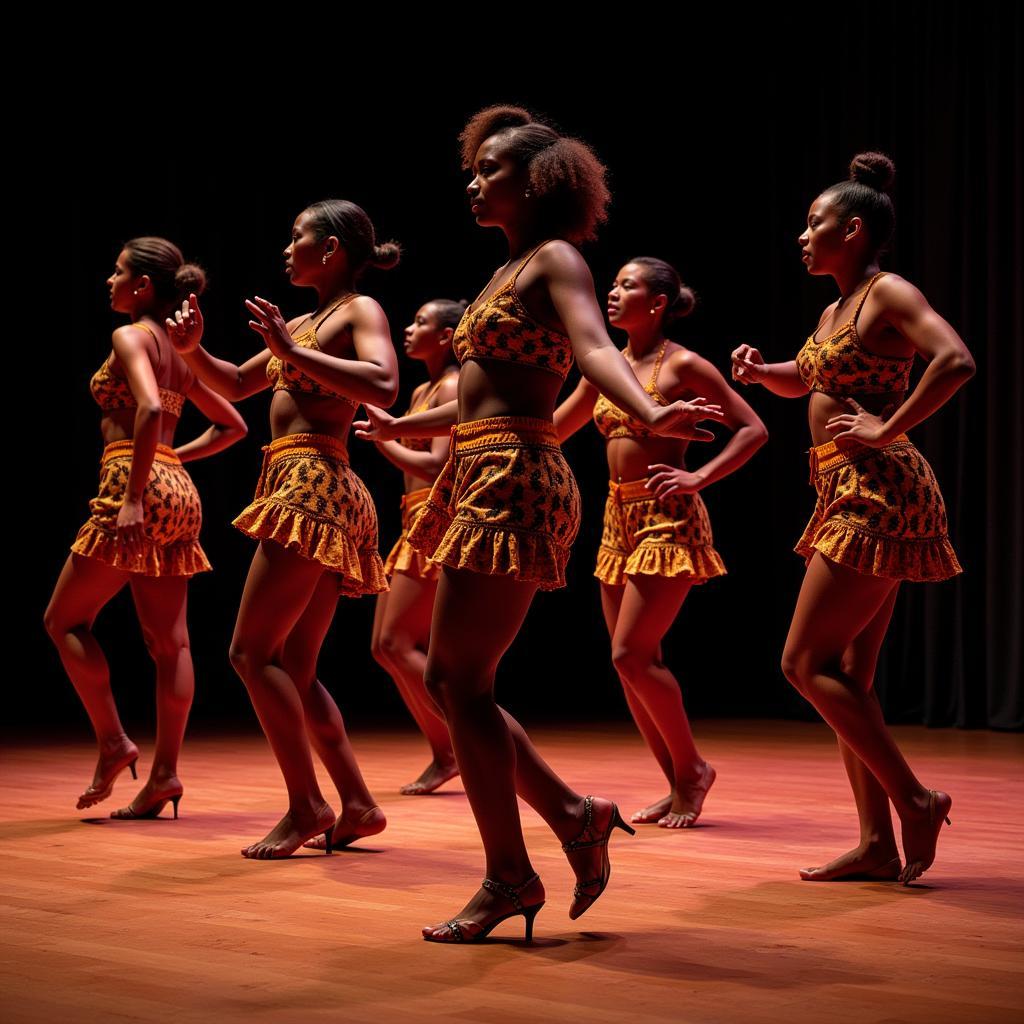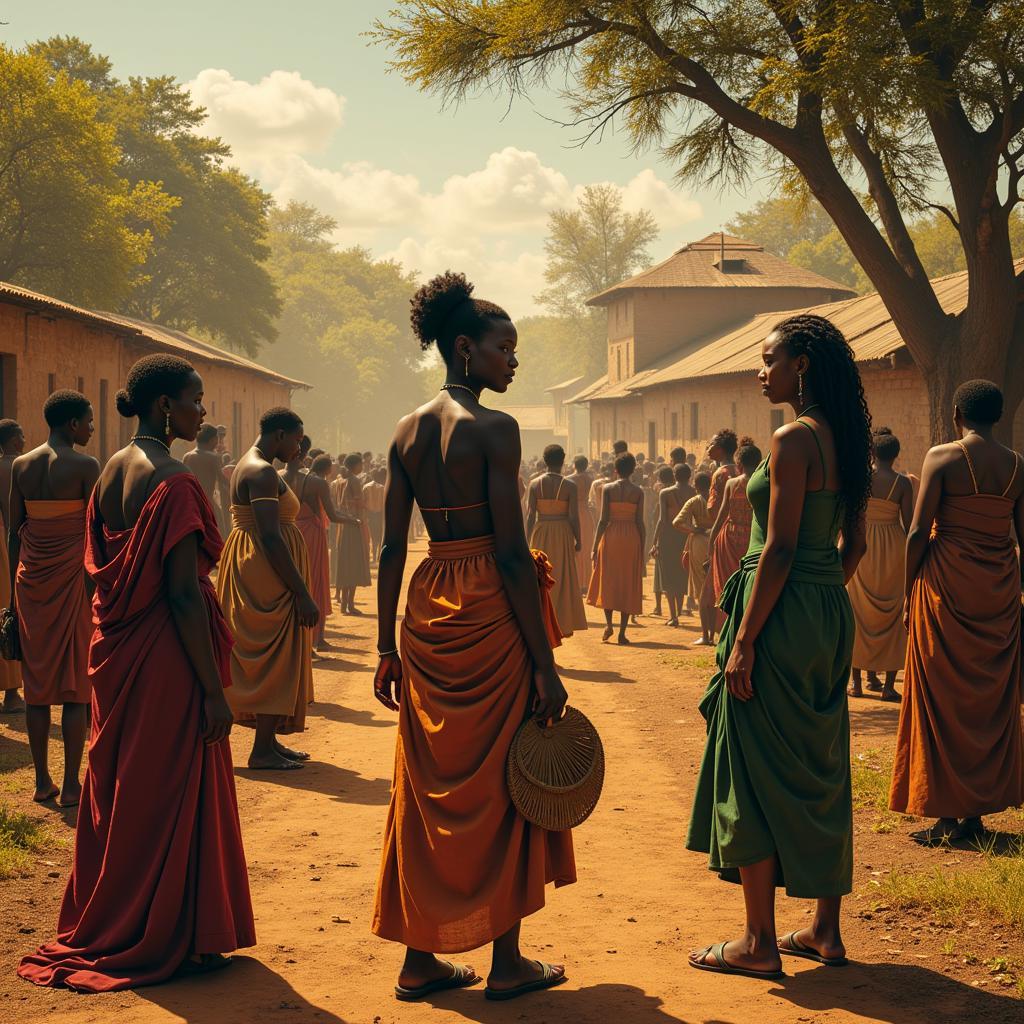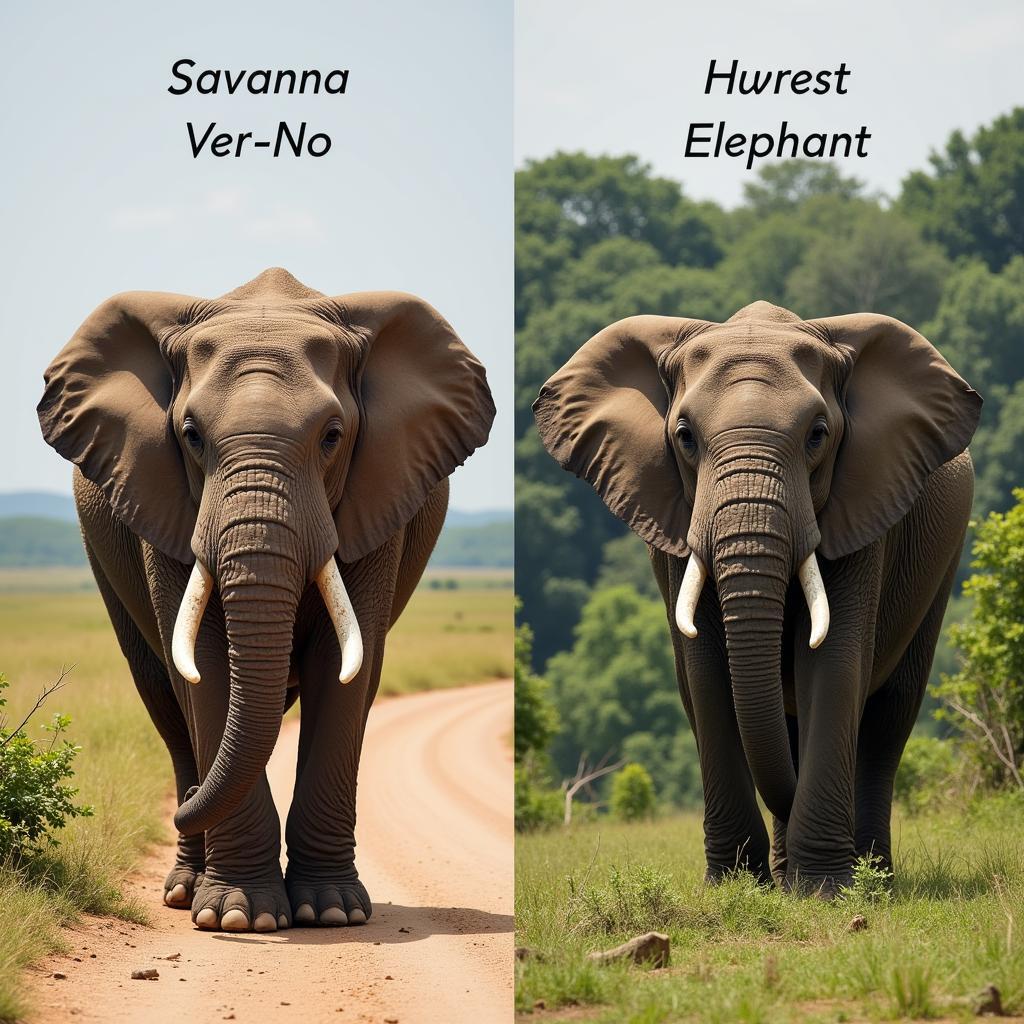Exploring the Vibrant World of African Cabaret Dance
African Cabaret Dance is a captivating blend of traditional African rhythms, contemporary dance styles, and theatrical performance. It’s a vibrant expression of African culture, showcasing the continent’s rich artistic heritage while embracing modern influences. From the energetic movements to the elaborate costumes, African cabaret dance offers a unique and unforgettable spectacle.
The Roots of African Cabaret Dance
African cabaret dance didn’t emerge in a vacuum. It’s deeply rooted in traditional African dances, which have played a crucial role in storytelling, celebrations, and rituals for centuries. These dances often involve intricate footwork, rhythmic body movements, and the use of props like masks and costumes. The communal nature of these dances, their connection to spirituality, and their role in preserving cultural heritage have all influenced the development of modern African cabaret.
Over time, these traditional forms evolved and intertwined with other dance styles from around the world, particularly during the colonial era. Influences from European cabaret, Latin American dance, and even American jazz can be seen in some forms of African cabaret. This fusion of styles created a dynamic and exciting new art form, one that retained its African identity while embracing global influences.
 African Cabaret Dance: Connecting to Traditional Roots
African Cabaret Dance: Connecting to Traditional Roots
The Spectacle of African Cabaret: Costumes, Music, and Performance
One of the most striking aspects of African cabaret is the visual spectacle. Elaborate costumes, often adorned with vibrant colors, beads, feathers, and intricate designs, play a crucial role in the performance. These costumes not only enhance the visual appeal but also often carry symbolic meaning, reflecting specific cultural traditions or stories. The music, too, is an integral part of the experience. Rhythmic drumming, melodic singing, and the use of traditional instruments create a captivating soundscape that drives the dancers’ movements and energizes the audience.
The performance itself is a dynamic and engaging experience. African cabaret dancers are known for their energetic movements, expressive gestures, and captivating stage presence. They often tell stories through their dance, conveying emotions and cultural narratives to the audience. The interaction between the dancers, the music, and the costumes creates a truly immersive and unforgettable experience.
What Makes African Cabaret Dance Unique?
What sets African cabaret apart from other dance forms is its unique blend of tradition and modernity. It’s a celebration of African heritage, a testament to the continent’s rich cultural tapestry, and a dynamic expression of contemporary artistic innovation. The energy, the rhythm, the costumes, and the storytelling all combine to create a truly unique and captivating experience.
“African cabaret is more than just entertainment,” says Dr. Abeni Adebayo, a renowned ethnomusicologist from Nigeria. “It’s a living embodiment of African culture, a powerful expression of identity, and a vibrant testament to the continent’s artistic resilience.”
Experiencing African Cabaret: Where to Find Performances
While African cabaret dance can be found across the continent, certain cities and countries are known for their vibrant cabaret scenes. From bustling nightclubs to cultural centers and festivals, there are numerous opportunities to witness this captivating art form.
Where can I see African cabaret dance?
You can find performances in nightclubs, cultural centers, and festivals throughout Africa.
What countries are known for their cabaret scene?
Several countries, including Senegal, Nigeria, and South Africa, have thriving cabaret scenes.
Conclusion
African cabaret dance is a vibrant and captivating art form that showcases the rich cultural heritage of Africa while embracing modern influences. From its traditional roots to its contemporary expressions, it offers a unique and unforgettable spectacle. So, immerse yourself in the rhythm, the energy, and the storytelling of African cabaret dance and discover the magic of this captivating art form.
FAQ
- What is the origin of African cabaret dance? It evolved from traditional African dances, incorporating influences from other dance styles.
- What makes the costumes unique? They are often elaborate and colorful, carrying symbolic meaning and reflecting cultural traditions.
- What type of music is used in African cabaret? Rhythmic drumming, melodic singing, and traditional instruments create a captivating soundscape.
- Where can I see African cabaret performances? You can find performances in nightclubs, cultural centers, and festivals across Africa.
- What is the significance of African cabaret? It celebrates African heritage, expresses identity, and showcases artistic resilience.
- Is African cabaret just for entertainment? No, it also plays a role in storytelling and cultural preservation.
- What makes African cabaret unique? It’s a powerful blend of tradition and modernity.
Need More Information?
Explore other related articles on our website, such as “A Deeper Dive into Traditional African Dance” and “The Evolution of Music in Africa”.
When you need support, please contact us: Phone: +255768904061, Email: kaka.mag@gmail.com Or visit us at: Mbarali DC Mawindi, Kangaga, Tanzania. We have a 24/7 customer service team.
“The beauty of African cabaret lies in its ability to connect us to the past while simultaneously pushing artistic boundaries,” shares Kwame Asante, a celebrated choreographer from Ghana.

